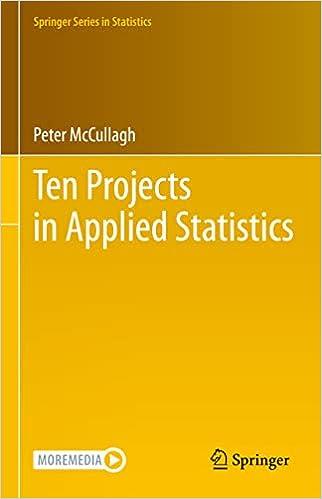A real-valued process (Y(cdot)) is called a Gaussian random affine function if the differences (Y(t)-Yleft(t^{prime}ight)) are Gaussian
Question:
A real-valued process \(Y(\cdot)\) is called a Gaussian random affine function if the differences \(Y(t)-Y\left(t^{\prime}ight)\) are Gaussian with covariances satisfying
\[
\operatorname{cov}\left(Y(x)-Y\left(s^{\prime}ight), Y(t)-Y\left(t^{\prime}ight)ight)=\sigma^{2}\left(s-s^{\prime}ight)\left(t-t^{\prime}ight)
\]
for some \(\sigma \geq 0\). Show that \(Z(t)=\beta_{0}+\beta_{1} t\) is a random affine function if and only if \(\beta_{1}\) is Gaussian.
Fantastic news! We've Found the answer you've been seeking!
Step by Step Answer:
Related Book For 

Question Posted:





